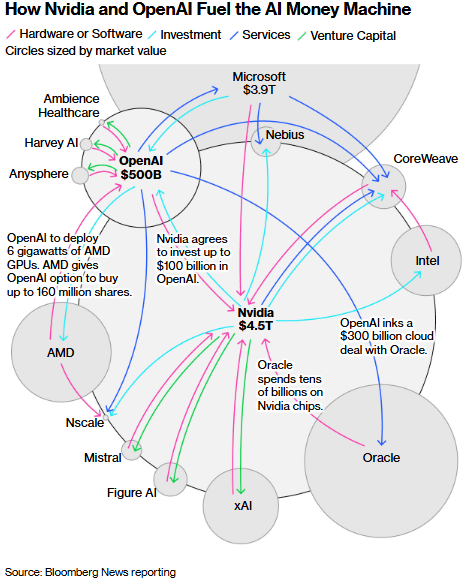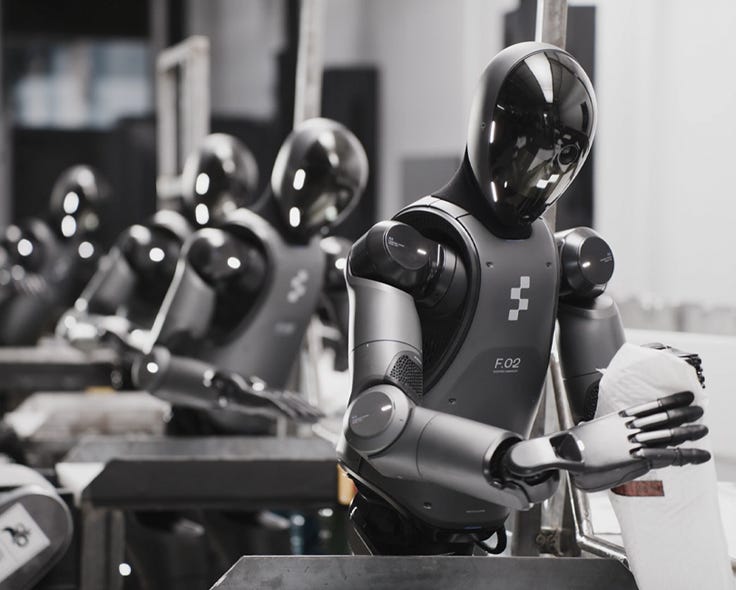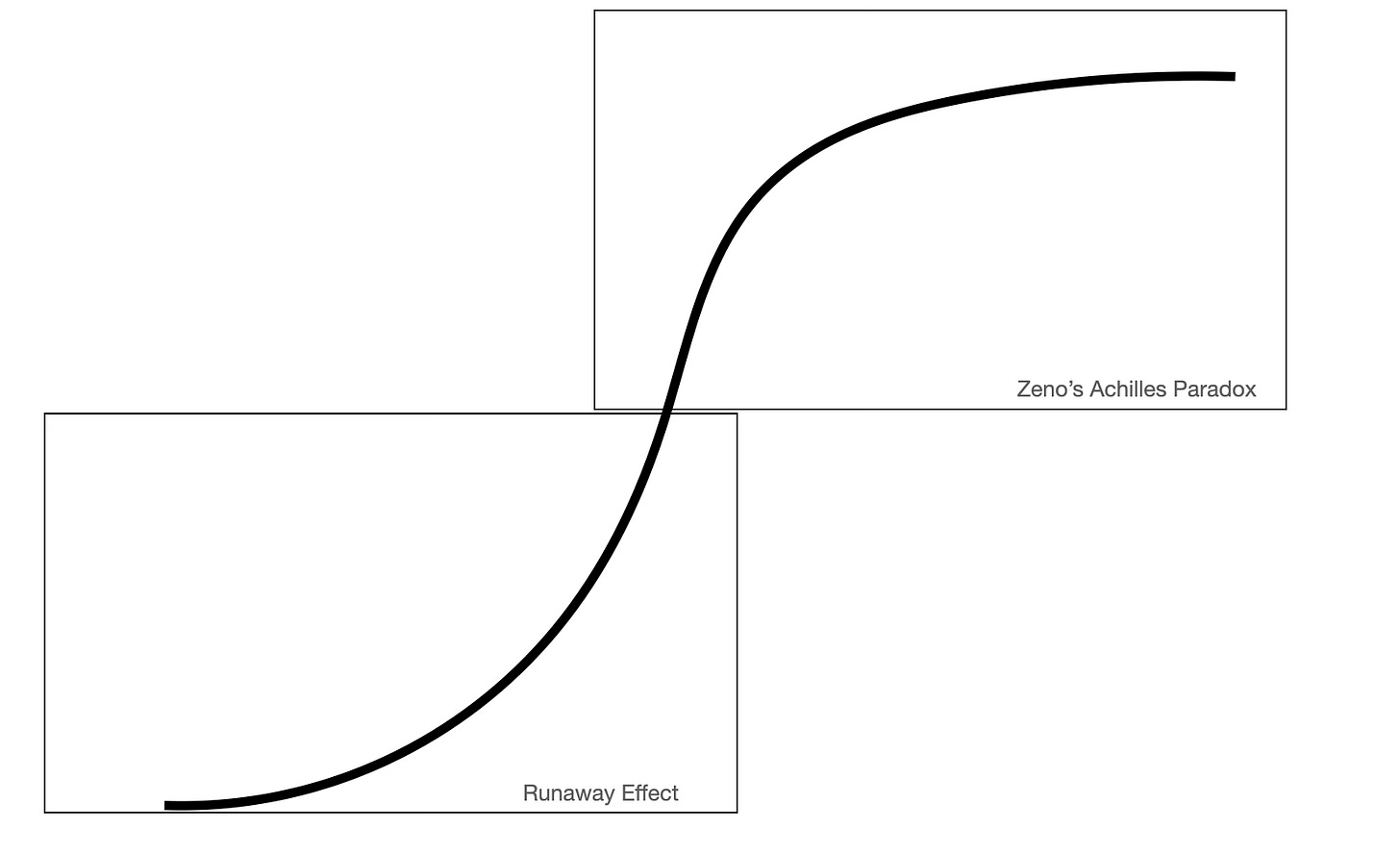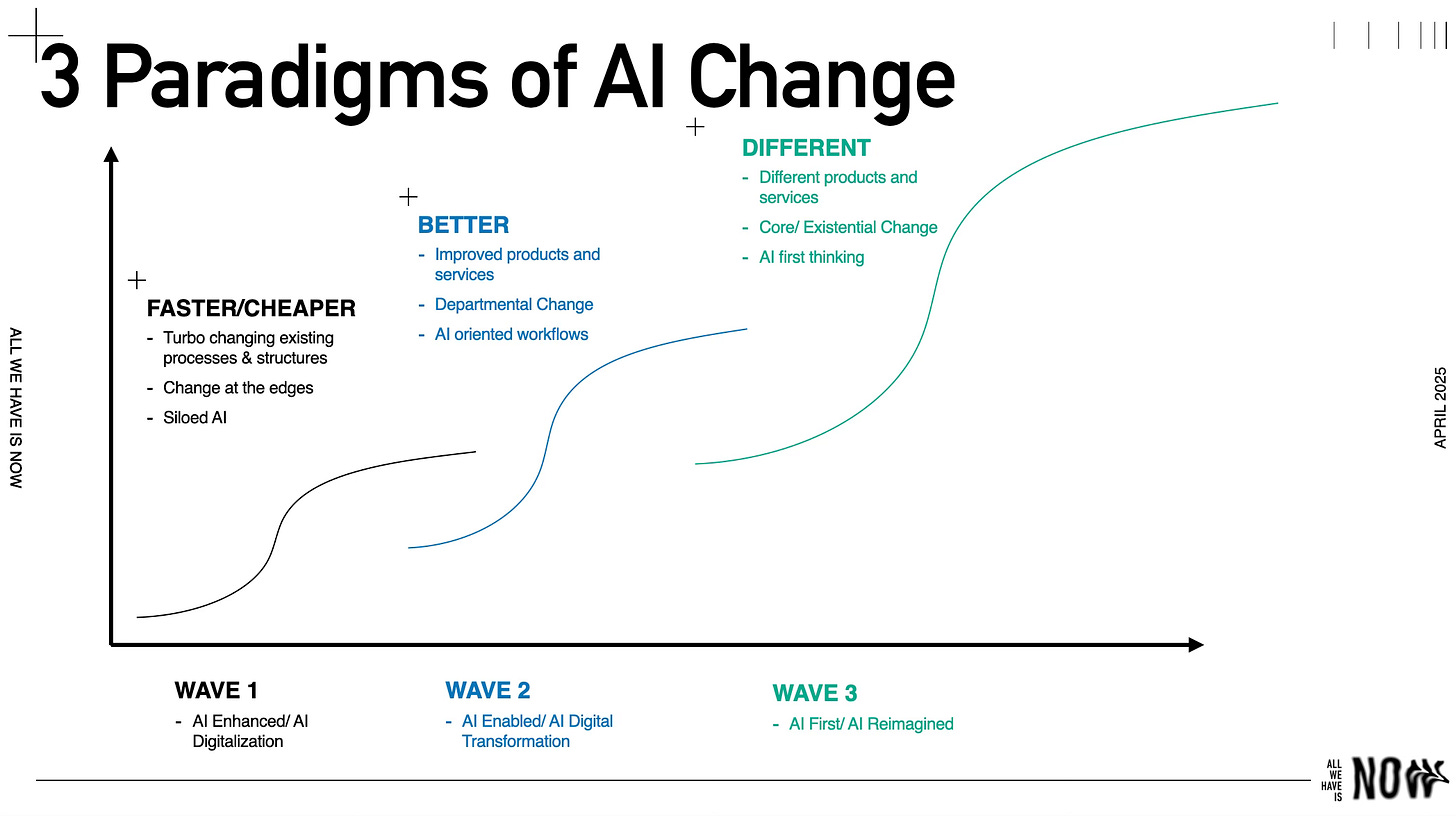This Newsletter goes out irregularly, but it’s been quite a long gap even for me. I’ve got a 4 month old kid and he’s not really sleeping. It’s not the time it takes that kills productivity, it’s the struggle for clarity.
Deeper ones.
A) Reality Cheques
There are times it feels like although Wall Street isn’t Main Street, and the US isn’t the World, that the entire Global Economy is propped up by confidence from the booming NASDAQ…… which has come about from 7 huge companies sending fake money between each other, and I wonder about where that leads us………
I personally don’t think it’s a bubble, I think it’s a spiral, it’s a circle of promises, all based on the assumption that if you build it they will come……And if they come, then value will be created……And if value is created, it carries on.
But is this all just imaginary money, the classic Vendor financing bubble, is this Cisco in 1999 or Lucent and Nortel or Railway mania, or the electricity boom of the 1900.
The widely circulated estimates are AI, as a whole, would need to generate $500B to $1T annual revenue within the next ten years or so to make all the infrastructure investments work. And thats quite some way away for something mostly used as a search wrapper for Reddit.
The way I think of this cycle is something I adapted from Goldman Sachs.
There are 4 phases of AI, or layers:
The first phase is the foundation, the construction of core AI infrastructure. The GPUs ( Nvidia), the Datacenters, the electrical power supply, a friend of mine works for Rolls Royce, a company absolutely swamped by demand for backup cooling pumps. These companies are all printing real money.
The second phase, the people building ON this , and the people paying for this, are the Hyperscalers, these are Amazon, Meta, Google, Microsoft, Oracle, Apple, and more, these are the people who think their only way to win or compete in the future is to be the people who own or run AI. In many cases I think they are utterly wrong, Meta is a media company, Apple doesn’t have to have its own AI, but thats just my view.
Phase 3 are companies who unlock AI-Enabled Revenue, these are companies who don’t need to build their own AI infrastructure, but can ( in theory) make more money from building products or sell services using think Palantir, ServiceNow, Accenture, Fortinet, Adobe, Workday, MongoDB etc etc
And then on top of these Products and services is Phase 4, AI-Enabled Productivity Gains.
Which, in theory, should be pretty much everyone and everything.
The promise has always been that the hyperscalers pay for the infrastructure, The AI-enabled revenue companies pay for the Hyperscalers, and the AI Enabled Productivity gainers pay for AI Enabled revenue.
The only problem seems to be there’s remarkably scant proof that AI Enabled Productivity is that great, and Phase 3 companies are often pushing AI products onto unsuspecting consumers, rather than selling them for huge demand driven sums.
How this all ends or where this all goes is completely unknown. My sense is that the hype has got out of control. It’s like Pascal’s wager, belief pulls people in, because people would rather the same as each other but wrong, be seen to knowledgeable and optimistic and enthusiastic, rather than measured or cautious. We have this bizzare idea that companies who move fast and first (with technology) win, when time and time and time and time again, this just isn’t true.
It’s not that AI or Generative AI isn’t helpful, or magical, or a paradigm shift in possibility, it’s that my beliefs are.
It takes depth of application of technology for productivity gains to appear. ( Transformation is about the lever arm, not the force)
Which means it takes time ( a decade?) for changes to appear.
A lot of really boring work needs to happen before this is possible, like data strategy, organizational change, auditability, explainability, workflow analysis, etc.
B) OpenAI- Everything Everywhere All At Once.
The pace of launches everywhere in AI land is crazy, but OpenAI’s launch tempo is quite absurd.
A new browser used to take a large tech company 3-5 years to launch, agonizing over every detail, plotting out a launch strategy, bug testing forever, but Sam Altman appeared totally perplexed in the quite cute Atlas Browser launch video, like he was seeing the work of people he’d never seen before.
Whether of not there is a public appetite to share passwords with an AI is one thing, whether sites that have spent decades and a fortune keeping out bots, will suddenly do a 180 and welcome them, is far from the certain. AI browsers seem to ask the question, wouldn’t it be great if we could talk to websites and I’m just not sure the answer is yes.
In the last month OpenAI has also
- launched Sora2, an impressive next gen generative video app
-And seems likely to soon to launch a social video app to showcase their own slop.
-It’s launched “buy in ChatGPT” million Shopify merchants, like Glossier, SKIMS, Spanx and Vuori
-It’s launched a quasi App Store/SDK. A new world of Conversational apps you can chat with (and the tools for developers to build them)
-It’s launched a way for companies to use their own knowledge better ( I like this one)
-It’s getting into Erotica
-And the sun that all tech grows towards, Advertising, is a key focus.
-It’s recruiting investment Bankers to help refine its ability to write strategy decks.
And this is far from everything.
Which begs the question, what exactly is it trying to be?
OpenAI as Operating system? OpenAI as a commerce front end? OpenAI as social media network? OpenAI as a media channel? OpenAI as a productivity tool?
It seems quite likely it’s trying to be everything.
Because true to the heart of every tech company is the idea that boundaries between company types mean nothing.
Your core competence is just building something, not category expertise.
Seems quite likely there will be four goals.
Make a product thats always best in class and top of mind.
Monetize through Advertising ( It has the best intent data you could ever ask for.)
Monetize through Affiliate marketing- take a cut of every transaction
Monetize through data selling ( It has a rich picture of how people behave and interests)
I’ve got a lot more thoughts on this, but I can’t express them clearly because I’m tired. Join me next time.
But I wouldn’t be so quick to assume that hundreds of millions of dollars will flow through ChatGPT to buy stuff on Walmart, I think conversational commerce is a poor UI.
And while Advertising will be huge for OpenAI, it also risks destroying trust, one of the key attributes that currently makes it sometimes useful.
Shhh I’m talking
I’ve always felt that innovation didn’t really happen in San Francisco. That’s just where the money was. I’ve always felt it happened in places like Bucharest or Tel Aviv or rural India or Brazil.
So I’m thrilled to be speaking at Brand Academy Day. I’m kicking it off on November 13th in Tel Aviv.
Will be talking about AI and Advertising (and other changes) and what it all means, and what to do about it now and soon. Read more here
Little Ones.
“Screens are clumsy, a necessary evil, an intermediary step. They were never going to last forever”, these pieces really piss me off because the picture says a thousand words. There’s never been a better way to buy things or do things than a visual interface.
Yes, some parts of the internet will become an ambient assistive thin glanceable layer, as I’ve often said, but AI builds on the existing platforms of today.
If we want to reduce screentime, we don’t need a new operating system. We need personal discipline and different incentives that fund the internet.Somehow Meta Is obsessed with ramming AI down everyone’s throats, and now AI is starting to dick around with ads and make them massively off brand. I find this thread amazing. People don’t get that the cost of a bad ad isn’t poor metrics, but complete brand destruction.
There was always a fascinating question about who should make the helicopter like drones of the future, Would it be helicopter makers or Chinese toy companies? Is it easier for a massive company that dominates aerospace to win over faster, more nimble companies with no concept of safety? Or is it better to be neither , it looks like Joby Aviation may be winning.
Someone made a “TV Channel” of entirely AI generated videos. Mesmerizing and souless.
I’m quite intrigued by the idea of reducing the frequency of company earnings, In a world where short-termism makes everything a frenzy, it seems like a good idea.
Introducing AlterEgo, the first near-telepathic interface, designed to make technology as intuitive as using your inner voice. It’s actually a bit of a scam requiring you to “mouth words silently” .
“If AI Takes Our Jobs, It’s Because We’ve Made Our Jobs Really Stupid”, I was quite honest when I spoke at ADMA in Sydney.
I’m fascinated by all of these toys that don’t have screens but offer the promise that they’ll help bring up your kids for you. Technology is never good for us or bad for us, It’s all on how we use it, But it’s always very hard to know what’s an extremely good idea and an extremely bad idea.
I loved this piece on accidental innovation. Of 190 “major” inventions between 1800 and 1970, about 14 could be described as accidental.
People who know AI, don’t know the real world #3031 , why AI isn’t replacing Radiologists
Rising trends in boredom, a study by Nature.
People are increasingly uncomfortable saying, “I don’t know.” , perhaps behind a paywall, so just pretend you read it.
One of the more promising, leave your smartphone behind, go see the world, devices out there. This is meadow - Leave your phone at home and make some memories.
Smarthome 2.0, it’s about time someone made a camera that tells you about your poo. The most amazing thing about this is the $150+ a year subscription cost.
So enough about photographing your own shit, let’s put down the internet for a bit.
Have a great day, everyone.
And apologies for the typos, I’m tired.
Tom















